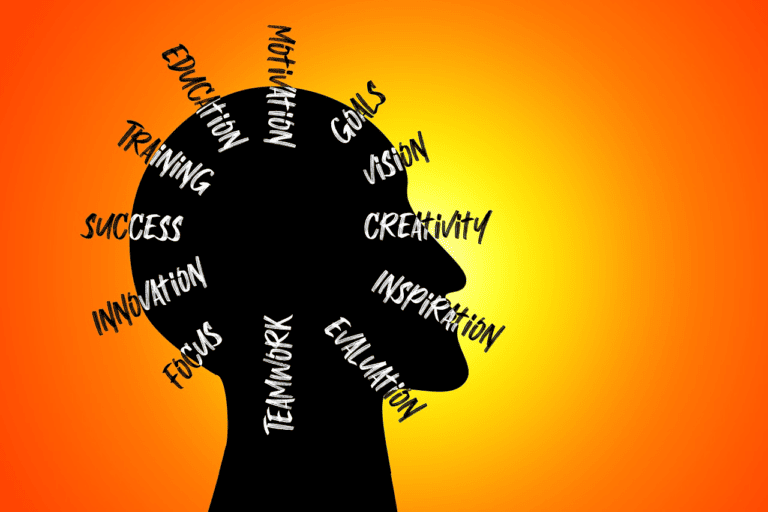Personal Analytical Skills
In today's fast-paced and complex world, the ability to think critically and analytically is a valuable asset.
Personal analytical skills are crucial for making sound decisions, solving problems, and understanding the world around us.
Whether it's in our professional lives, academic pursuits, or everyday interactions, honing these skills can be the key to success and fulfillment.
In this discussion, we will explore the significance of analytical thinking, offer practical strategies for developing critical thinking abilities, and discuss how to apply these skills in various aspects of our lives.
Key Takeaways
- Self-reflection is crucial for assessing strengths and weaknesses in analytical thinking.
- Understanding personal analytical skills is essential for professional growth and success in problem-solving.
- Developing critical thinking abilities leads to more effective decision-making and innovative problem-solving.
- Applying analytical skills requires a methodical approach to problem-solving and decision-making.
Understanding Personal Analytical Skills

Understanding one's personal analytical skills is essential for professional growth and success in problem-solving. Self-reflection is a key component in this process. By taking the time to assess one's strengths and weaknesses in analytical thinking, individuals can better understand how they approach problem-solving situations. Self-reflection allows for a deeper understanding of the thinking processes and strategies employed when tackling challenges. It also provides an opportunity to identify areas for improvement and development.
Problem-solving is a fundamental skill in the professional world. Whether it's in a corporate setting, academic environment, or any other professional field, the ability to analyze complex situations and devise effective solutions is highly valued. Understanding one's personal analytical skills is the first step towards honing these abilities. It allows individuals to leverage their strengths and work on enhancing their weaker areas, ultimately becoming more adept at addressing and resolving various issues.
Importance of Analytical Thinking
What role does analytical thinking play in the development of effective problem-solving skills in the professional realm?
Analytical thinking is of paramount importance in fostering adept problem-solving skills in the professional domain. It involves the ability to scrutinize complex situations, identify key issues, and formulate logical and evidence-based solutions. Critical thinking, a key component of analytical thinking, enables professionals to systematically analyze problems, evaluate information, and make informed decisions. This skill is indispensable in navigating the intricacies of the modern workplace, where professionals are often required to address multifaceted challenges and make sound judgments.
Effective problem-solving hinges on the capacity to approach issues with a discerning and analytical mindset. By leveraging analytical thinking, professionals can break down problems into manageable components, discern patterns, and devise innovative strategies. Furthermore, analytical thinking cultivates a proactive approach to problem-solving, wherein individuals are adept at anticipating potential obstacles and devising preemptive measures.
In essence, the cultivation of analytical thinking not only enhances problem-solving abilities but also equips professionals with the acumen to tackle challenges with confidence and precision in the dynamic professional landscape.
Developing Critical Thinking Abilities

An essential aspect of professional development involves honing critical thinking abilities to enhance problem-solving and decision-making skills. Developing critical thinking abilities entails cultivating logical reasoning and mastering problem-solving techniques.
Logical reasoning forms the foundation of critical thinking, enabling individuals to analyze situations, evaluate evidence, and construct sound arguments. It involves the ability to identify and eliminate inconsistencies or fallacies in one's own thinking and that of others.
Problem-solving techniques are essential in critical thinking as they facilitate the systematic approach to addressing complex issues. This involves defining the problem, generating and evaluating potential solutions, and implementing the most effective course of action.
By developing these critical thinking abilities, individuals can approach challenges with a structured and analytical mindset, leading to more effective decision-making and innovative problem-solving.
Moreover, the honing of critical thinking abilities not only benefits individuals in their professional capacities but also in their personal lives, as it fosters a more discerning and rational approach to various situations and dilemmas.
Practical Tips for Enhancing Analysis
To enhance analysis skills, individuals can employ practical tips that promote a structured approach to information evaluation and problem-solving. Enhancing problem-solving and critical evaluation techniques is crucial for effective analysis. Here are some practical tips for enhancing analysis skills:
| Practical Tips for Enhancing Analysis | Description | Benefits |
|---|---|---|
| Use Structured Analytical Tools | Employ frameworks like SWOT analysis, mind mapping, or the 5 Whys technique to systematically analyze information and identify key issues. | Enhances problem-solving abilities and ensures a comprehensive evaluation of all relevant aspects. |
| Develop Information Gathering Strategies | Utilize diverse sources, such as academic papers, industry reports, and expert opinions, to gather comprehensive and varied data for analysis. | Facilitates critical evaluation by providing a broad spectrum of information and viewpoints. |
| Practice Logical Reasoning | Engage in exercises that require logical reasoning and deduction, such as solving puzzles or playing strategy games. | Sharpens critical thinking skills and enhances the ability to identify patterns and underlying causes. |
Applying Analytical Skills in Everyday Life

Applying analytical skills in everyday life requires a methodical approach to problem-solving and decision-making, essential for navigating complex situations with clarity and efficiency. Everyday problem-solving involves breaking down issues into manageable parts, identifying patterns, and evaluating potential solutions. This systematic approach enables individuals to make well-informed decisions, whether it's budgeting for expenses, planning daily tasks, or resolving conflicts.
The decision-making process in everyday life often involves weighing options, considering potential outcomes, and assessing risks. Analytical skills play a crucial role in this process by enabling individuals to gather relevant information, analyze it objectively, and anticipate the consequences of their choices. Whether it's deciding on a major purchase, choosing a career path, or determining the best course of action in a personal relationship, the ability to apply analytical skills can lead to more effective and satisfying outcomes.
In essence, the application of analytical skills in everyday life empowers individuals to approach challenges with a strategic mindset, fostering a greater sense of control and confidence in their decision-making abilities. By honing these skills, individuals can enhance their problem-solving capabilities and make more informed choices, contributing to a more organized and fulfilling life.
Conclusion
In conclusion, developing personal analytical skills is akin to sharpening a blade for cutting through the complexities of everyday life.
By understanding the importance of analytical thinking and actively working to enhance critical thinking abilities, individuals can effectively apply their skills in various aspects of their lives.
With practical tips for enhancing analysis, individuals can navigate through challenges with clarity and precision.





